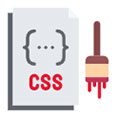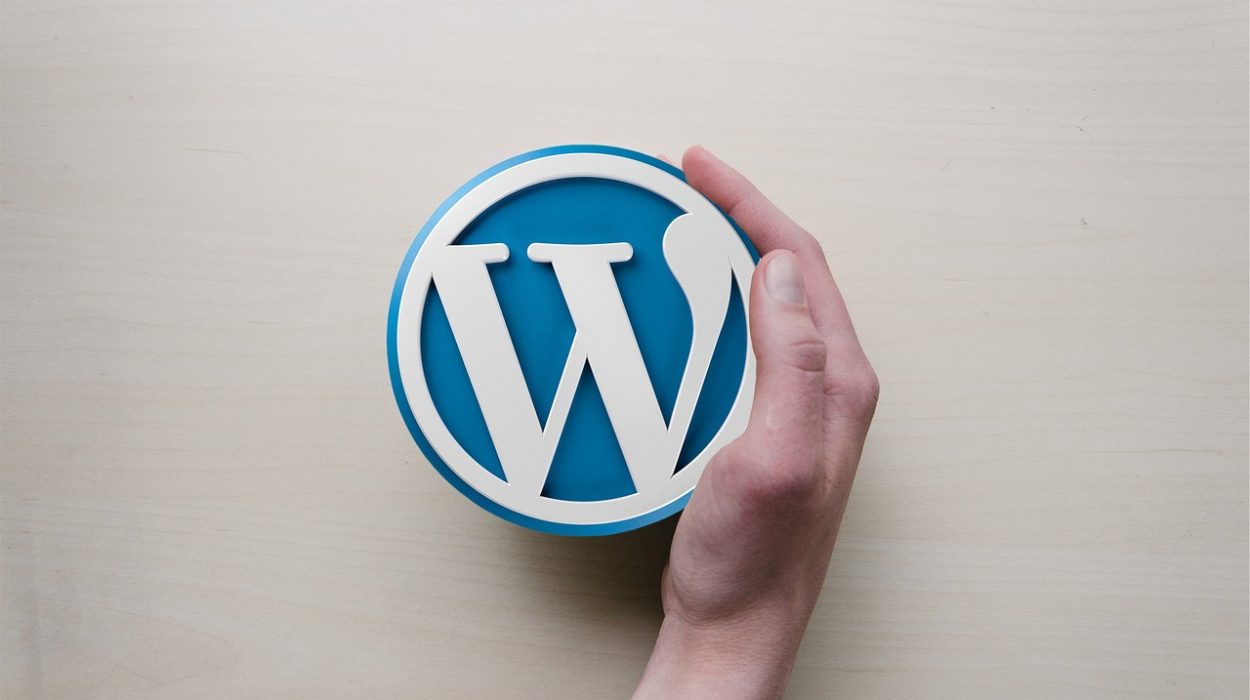Assessing Your Business Needs
Selecting the ideal Content Management System (CMS) for your small business begins with a thorough assessment of your specific requirements. By clearly defining your goals and identifying essential features, you can narrow down the options and find a CMS that aligns perfectly with your business objectives.
Define Your Goals
Before diving into the technical aspects of various CMS platforms, it’s crucial to establish clear goals for your website. This process helps guide your decision-making and ensures that the chosen CMS can support your business’s growth and online presence.
Common goals for small businesses implementing a CMS include:
- Improving website management efficiency
- Enhancing user experience and navigation
- Increasing organic traffic through better SEO
- Streamlining content creation and publishing processes
- Integrating e-commerce capabilities
- Facilitating team collaboration on content
- Enabling responsive design for mobile users
- Implementing effective marketing strategies
- Reducing overall website maintenance costs
By prioritizing these goals, you can focus on CMS features that directly contribute to achieving your business objectives.
Identify Essential Features
Once you’ve defined your goals, the next step is to identify the essential features your CMS must have to support those objectives. Different businesses will have varying needs, but some features are universally beneficial for small businesses.
| Feature | Benefit |
|---|---|
| SEO Tools | Improve search engine rankings and visibility |
| E-commerce Capabilities | Enable online sales and product management |
| Blogging Functions | Facilitate content marketing and customer engagement |
| User Management | Control access and permissions for team members |
| Media Management | Efficiently organize and display images and videos |
| Analytics Integration | Track website performance and user behavior |
| Social Media Integration | Enhance social sharing and engagement |
| Security Features | Protect your website from threats and vulnerabilities |
| Mobile Responsiveness | Ensure optimal viewing on all devices |
| Customization Options | Tailor your website’s appearance and functionality |
By identifying these essential features, you can create a checklist to evaluate different CMS platforms and ensure they meet your specific business needs.
Ease of Use and Learning Curve

For small businesses, especially those without dedicated IT staff, the user-friendliness of a CMS is paramount. A platform that’s intuitive and easy to navigate can save time, reduce frustration, and empower team members to contribute effectively to your online presence.
User-Friendly Interfaces
An intuitive interface allows users to easily manage content, make updates, and navigate the CMS’s features without extensive technical knowledge. When evaluating CMS platforms, look for those that offer:
- Clean, organized dashboards
- Drag-and-drop content editors
- Visual page builders
- Intuitive menu structures
- Clear labeling of features and functions
CMS platforms known for their user-friendly interfaces include:
- WordPress: Widely praised for its intuitive dashboard and editor
- Wix: Offers a highly visual, drag-and-drop website builder
- Squarespace: Known for its sleek, minimalist interface
- Shopify: Provides an easy-to-navigate e-commerce focused interface
- Ghost: Features a clean, distraction-free writing environment
These platforms prioritize user experience, making it easier for small business owners and their teams to manage their websites effectively.
Learning Resources and Community Support
Even with a user-friendly interface, having access to comprehensive learning resources and a supportive community can significantly ease the adoption process of a new CMS. Look for platforms that offer:
- Extensive official documentation
- Video tutorials and webinars
- Active user forums and community groups
- Regular updates and feature guides
- Third-party courses and training materials
For example, WordPress.org provides a wealth of resources, including detailed documentation, community forums, and a vast ecosystem of third-party tutorials and courses. This extensive support network can be invaluable for small businesses looking to maximize their CMS’s potential.
Customization and Flexibility
The ability to customize your website’s appearance and functionality is crucial for creating a unique online presence that reflects your brand identity. A flexible CMS allows you to adapt your website as your business grows and evolves.
Themes and Templates
Themes and templates serve as the foundation for your website’s design, determining its overall look and feel. A good CMS should offer a wide variety of themes, both free and premium, to suit different industries and aesthetic preferences.
| CMS Platform | Free Themes | Premium Themes | Customization Level |
|---|---|---|---|
| WordPress | 4,000+ | 10,000+ | High |
| Joomla | 1,000+ | 2,000+ | Medium-High |
| Drupal | 2,000+ | 1,000+ | High |
| Shopify | 8 | 70+ | Medium |
| Wix | 500+ | N/A | Medium |
When evaluating themes, consider factors such as:
- Mobile responsiveness
- Customization options
- Industry-specific designs
- Loading speed and performance
- Compatibility with popular plugins or extensions
Plugin and Extension Support
Plugins and extensions enhance your CMS’s functionality, allowing you to add features without the need for custom development. A robust plugin ecosystem can significantly extend your website’s capabilities.
Essential plugins/extensions for small businesses:
- SEO optimization tools (e.g., Yoast SEO for WordPress)
- Contact form builders
- Social media integration
- E-commerce functionality
- Security and backup solutions
- Performance optimization tools
- Email marketing integrations
- Analytics and tracking plugins
- Appointment booking systems
- Customer relationship management (CRM) integrations
When choosing a CMS, consider the availability and quality of plugins or extensions that align with your business needs. Platforms like WordPress and Shopify are known for their extensive plugin ecosystems, offering solutions for virtually any functionality you might need.
Scalability and Performance

As your small business grows, your website needs to keep pace. Choosing a CMS that can scale with your business and maintain performance under increased traffic is crucial for long-term success.
Scalability Options
A scalable CMS should be able to handle increasing content volumes, user traffic, and functionality without significant performance degradation. Look for platforms that offer:
- Flexible hosting options: The ability to upgrade hosting plans or move to more powerful servers as needed.
- Content organization tools: Features like categories, tags, and custom post types to manage large amounts of content effectively.
- Multi-site capabilities: The option to manage multiple websites from a single installation.
- API support: Allows for integration with other systems and services as your business expands.
- E-commerce scalability: For businesses selling online, the ability to handle increasing product catalogs and transaction volumes.
Examples of scalable CMS platforms:
- WordPress: Highly scalable with the right hosting and optimization
- Drupal: Known for its ability to handle large, complex websites
- Magento: Offers enterprise-level scalability for e-commerce
- Shopify Plus: Provides advanced features for high-volume online stores
- Joomla: Scales well for content-heavy websites
Performance Optimization
Maintaining website speed and efficiency is crucial for user experience and search engine rankings. Look for CMS platforms that offer built-in performance optimization features or support for optimization plugins.
Performance optimization tools and practices:
- Caching mechanisms
- Content Delivery Network (CDN) integration
- Image optimization
- Minification of CSS and JavaScript
- Database optimization
- Lazy loading of images and videos
- AMP (Accelerated Mobile Pages) support
Many popular CMS platforms offer plugins or extensions specifically designed for performance optimization. For example, WordPress users can leverage tools like W3 Total Cache or WP Rocket to significantly improve their website’s speed and efficiency.
Security and Updates
In today’s digital landscape, website security is paramount. Choose a CMS that prioritizes security and provides regular updates to protect your business from potential threats.
Built-in Security Features
Look for CMS platforms that offer robust security features out of the box, as well as support for additional security enhancements.
| Security Feature | Description |
|---|---|
| SSL Support | Enables encrypted connections between server and users |
| User Authentication | Secure login processes and password policies |
| Role-based Access Control | Granular control over user permissions |
| Regular Security Updates | Timely patches for vulnerabilities |
| Backup and Restore | Easy ways to backup and restore your website |
| Firewall Integration | Protection against common web attacks |
| Two-Factor Authentication | Additional layer of login security |
Regular Updates and Support
A CMS that receives frequent updates is more likely to stay secure and offer improved functionality over time. Consider the following when evaluating CMS platforms:
- Frequency of updates and security patches
- Ease of applying updates
- Backward compatibility with plugins and themes
- Quality of official documentation
- Availability of professional support options
- Size and activity of the developer community
CMS platforms known for their strong update and support systems include WordPress, Drupal, and Joomla. These open-source platforms benefit from large communities of developers who contribute to their ongoing improvement and security.
Cost Considerations
Understanding the total cost of ownership for your chosen CMS is crucial for small businesses operating on tight budgets.
Upfront and Ongoing Costs
Consider both the initial setup costs and the long-term expenses associated with running your website.
| Cost Factor | Description |
|---|---|
| Licensing Fees | Some CMS platforms require annual or monthly fees |
| Hosting | Costs for web hosting, which can vary based on traffic and features |
| Themes | One-time or recurring costs for premium themes |
| Plugins/Extensions | Fees for essential premium plugins or extensions |
| Development | Costs for customization or professional setup |
| Maintenance | Ongoing expenses for updates, backups, and security |
| Support | Fees for premium support or consulting services |
Value for Money
Assess the value offered by each CMS platform by comparing their features, scalability, and support against their total cost of ownership.
Cost-effective CMS options for small businesses:
- WordPress (self-hosted): Free core software with costs for hosting and premium themes/plugins
- Wix: All-in-one solution with tiered pricing based on features
- Squarespace: Comprehensive platform with straightforward pricing
- Ghost: Open-source option with affordable hosting plans
- TYPO3: Free, open-source CMS with enterprise capabilities
When evaluating cost-effectiveness, consider not just the upfront costs but also the long-term value in terms of time saved, ease of use, and potential for growth.
Popular CMS Platforms for Small Businesses
WordPress
WordPress powers over 40% of all websites, making it the most popular CMS globally. Its flexibility and extensive ecosystem make it suitable for a wide range of small business needs.
Key features of WordPress:
- Intuitive content editor (Gutenberg)
- Vast library of themes and plugins
- Strong SEO capabilities
- Regular updates and security patches
- Large community and extensive documentation
- Scalability from small blogs to large e-commerce sites
WordPress is particularly well-suited for businesses that prioritize content marketing, blogging, and need a high degree of customization.
Shopify
For small businesses focused on e-commerce, Shopify offers a comprehensive solution that simplifies online selling.
Shopify’s strengths include:
- User-friendly interface designed for e-commerce
- Integrated payment solutions
- Built-in marketing and SEO tools
- Extensive app store for additional functionality
- 24/7 customer support
- Scalability for growing businesses
Pricing plans range from $29 to $299 per month, with additional costs for certain features and transaction fees for external payment gateways.
Joomla
Joomla is a versatile CMS that offers a good balance between ease of use and advanced functionality, making it suitable for various small business types.
Joomla’s key features:
- Flexible content structure
- Strong multi-lingual support
- Advanced user management
- Extensive extension directory
- Built-in SEO features
- Active community and regular updates
Joomla is particularly well-suited for businesses that need complex content organization or multi-lingual websites.
Choosing the right CMS for your small business involves carefully considering your specific needs, goals, and resources. By evaluating factors such as ease of use, customization options, scalability, security, and cost, you can select a platform that not only meets your current requirements but also supports your business’s future growth. Remember that the best CMS for your business is one that aligns with your goals, fits your budget, and empowers your team to manage your online presence effectively.

